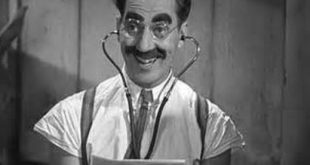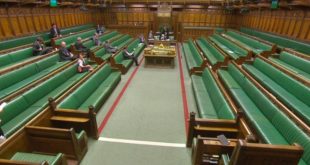Regulus Partners warns operators to prepare for further Bundesrat schadenfreude as the ‘toleration phase’ of the Fourth Interstate Treaty on Gambling reveals the unprecedented costs of operating in Germany’s re-regulated marketplace.
__________
The initial financial cost of German gambling regulation is now becoming clear. In its components, it is in line with what we expected, but the impact remains sufficiently compartmentalised and uncertain for optimism to prevail. We believe that the current ‘Toleration’ period is far from the worst the German market has to offer. A raft of additional changes can be expected over the balance of this year which are likely to pressure revenues further.
Nevertheless, as we have argued before, there will be just enough revenue and regulatory dialogue to keep hope alive. The most likely result of this confluence of regulatory, economic and behavioural factors is a value trap which sucks an LfL €1.2bn of profit contribution from a regulated online gambling industry which can ill afford it.
Evidence of the initial cost to operators of the Toleration period is now coming to light. Betting is not yet fully effected and the 16% decline in annual domestically taxed turnover to €7.78bn is almost entirely down to Covid-19 policy disruption (Q2 calendar, closed shops). Given the margin benefits seen in Q4 it is likely that revenue will be flat to up. However, as product and social responsibility measures begin to bite, the relative attractiveness of the black market will grow. Online sportsbetting should nevertheless have a relatively stable operating environment and easy comps in H121. Continued lockdown until (at least) March is also likely to drive channel shift further from the pre-Covid c. 75 / 25 mix in favour of online (including tax).
The Toleration period is targeting and directly impacting online gaming with the closure of table games (ex poker), the reduction of slots to €1 per spin and the capping of deposits to €1,000 (NB, not yet joined up). These measures have led to gaming-led operators seeing a c. 70% fall in gaming revenue. However, the overall impact is likely to be less severe at this stage given the likely benefits to poker, the concentration of more mass-market gaming customers into a few operators (ie, ‘me-too’ gaming-led operators will be the worst hit) and a degree of substitution into betting (this is where the cutting of ‘long tail’ in-play markets becomes important). The overall market, including betting, is therefore likely to be down ‘only’ c. 20% on a like-for-like basis, therefore. Nevertheless, the level of dislocation is enough to wipe out gaming profit, in our view, outside the biggest poker operators.
Our expectations for gaming on the full implementation of IST4 from July remain an 80% drop in revenue (ie, another c. 33% decline from here), which is clearly contrary to some hopes that we are currently seeing the worst of it. There are four reasons which drive our continued bearish stance:
- The shift in demand to black-market choices is likely to be stronger than the compliance and enforcement available, therefore representing a growing problem
- While German states might be talked down from unworkable tax rates (see WPs passim), the base-case remains punitive rates, which reduces ‘long-tail’ licensed supply and further tips the scales in favour of the black market (choice and product distortions)
- The full range of joined-up social responsibility requirements are not yet in place, although this might also be true in July
- Cross-sell from largely unaffected betting remains intact if diminished; this too will become disrupted from H221
Given what has to come, therefore, we remain very bearish on German market developments. Those waiting or hoping for a brighter .de future may well be waiting a long time. A key question, therefore, is the strategic cost of hope. A market which is hopelessly dysfunctional can at least be managed by exit: turning a positive contribution into no contribution. However, if a critical mass of operators attempt to stay in play for a better regulatory outcome or to gain the scale for ‘last man standing’ market share, then this break on lossmaking will be removed.
The headlines so far seem to be focussed on the revenue disruption. In terms of business sustainability, a much more serious impact is the risk (likely, in our view) of turning a market that contributed c. €1bn in incremental cash flow per annum up to Q320 into a c. – €200m value trap from H221. That is a very dangerous swing factor given everything else that is going on in the world.
UK: In Parliament – Parliament of Rogues
During the long-running and rather unpleasant public policy debate on Fixed Odds Betting Terminals, the Campaign for Fairer Gambling ran a regular ‘Pants on Fire’ feature as part of its highly effective (and ultimately successful) advocacy programme. Given this week’s shenanigans in the House of Lords, we are strongly considering its resurrection.
On Tuesday, Lord Foster of Bath asked whether or not the Government had plans to introduce stake limits for online gambling. This is a perfectly reasonable question (and one which the DCMS review of the Gambling Act explicitly seeks to address) but not one that the assembled and conscious peers seemed particularly interested in debating.
First, in admonishing the Government for “complacency” in seeking to address the question of stake limits through a formal review, Lord Foster (who presumably prefers his legislation on the hoof) claimed that the recent Lloyds Bank-Oxford University study of gambling expenditures showed “an increased likelihood of suicide” among those who gamble more than they can afford. The paper (potentially a ‘pants on fire’ candidate itself as we politely pointed out last week) of course provides no such finding.
Next up was Lord Empey of the Ulster Unionist Party who told the House that gambling companies knew “exactly who was watching TV at three in the morning” – a remarkable claim of industry omniscience offered without anything in the way of substantiation or evidence. The noble Lord proceeded to call for a punitive “special tax” to be levied on licensed operators to atone for such voyeuristic “abuses”.
The Conservative Lord Smith of Hindhead called for National Lottery online instants to be capped at a level below £10 a game – only to be told by Baroness Barran that this was already the case (stake size has been restricted to £5 since the summer of last year).
Baroness Armstrong of Hilltop expressed concern about the “increasing number of women who are gambling” – an activity which she stated “had a huge impact on their lives and the lives of their families or children”. According to official prevalence surveys, the estimated rate of gambling participation amongst women fell from 71% in 2010 to 51% in 2018 – or from 53% to 37% if National Lottery draws are excluded (both all-time lows since prevalence surveys began). The rate of PGSI ‘moderate risk’ or ‘problem’ gambling amongst women also declined over that period – from 1.0% in 2010 to 0.4% in 2018 (0.3% ‘moderate risk’; 0.1% ‘problem).
In amongst all this tosh there were more considered questions from the cross-bencher, Lord Berkeley of Knighton (who asked whether the increase in ‘responsible gambling’ adverts betokened an earnest effort on behalf of licensees to reduce harm); the Liberal Democrat, Baroness Bakewell of Hardington Mandeville (whether black market risk is a valid impediment to legislative or regulatory reform); and Labour’s Lord Sikka (calling for pre-release safety testing for gambling products).
Rather than the Gambling Act review sharpening minds, there is evidence that the standard of parliamentary debate is in fact deteriorating (notwithstanding the admirable efforts of the far better informed Baroness Barran to inject a little integrity into proceedings).
It is perhaps not surprising that some of those who have spent large parts of their lives within the ‘Westminster Bubble’ have evolved a rather unusual relationship with factual accuracy. Some years ago, the brilliantly effective campaigner, Matt Zarb-Cousin called for those who misled Parliament in debates on gambling to face criminal action. While this is not something that we support, the sentiment is easy to understand. Parliamentarians should remember that their activities are funded by the taxpayer and – particularly during these straitened times – the taxpayer deserves much, much better.
_______________
Featured article edited by SBC from ‘Winning Post’ Sunday 14 February 2021 (click on the below logo to access a full unedited version)










